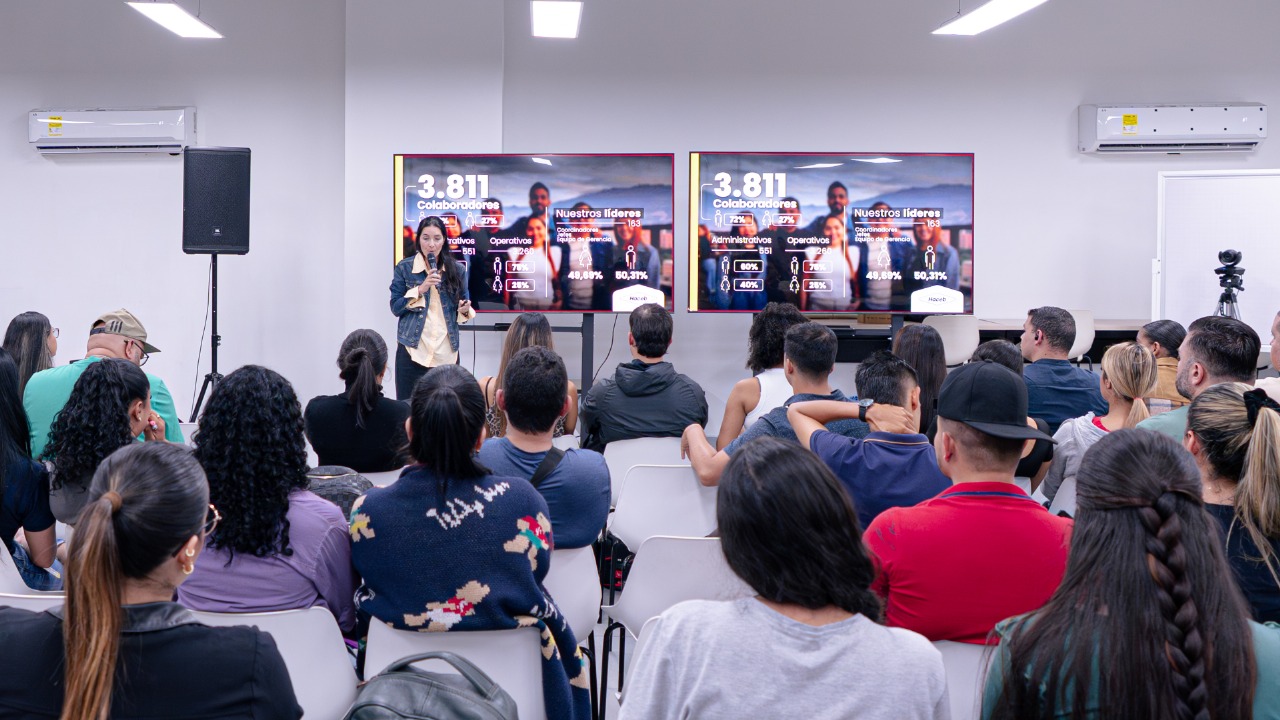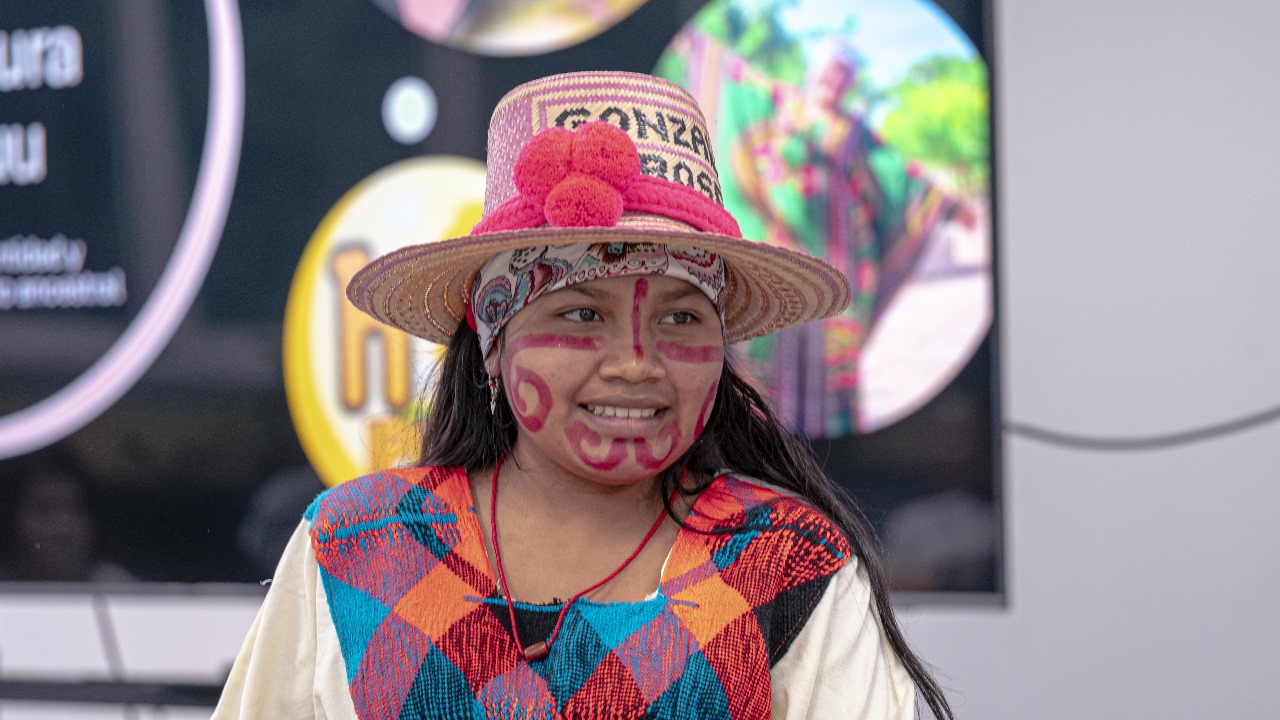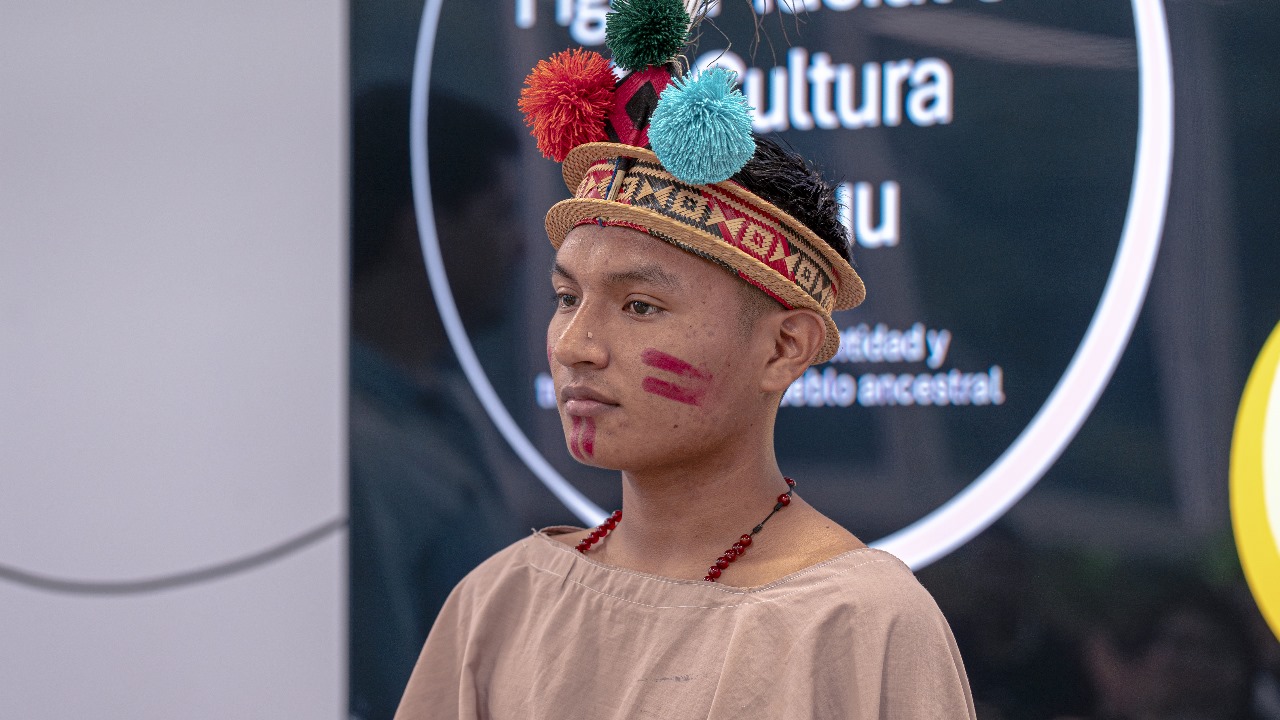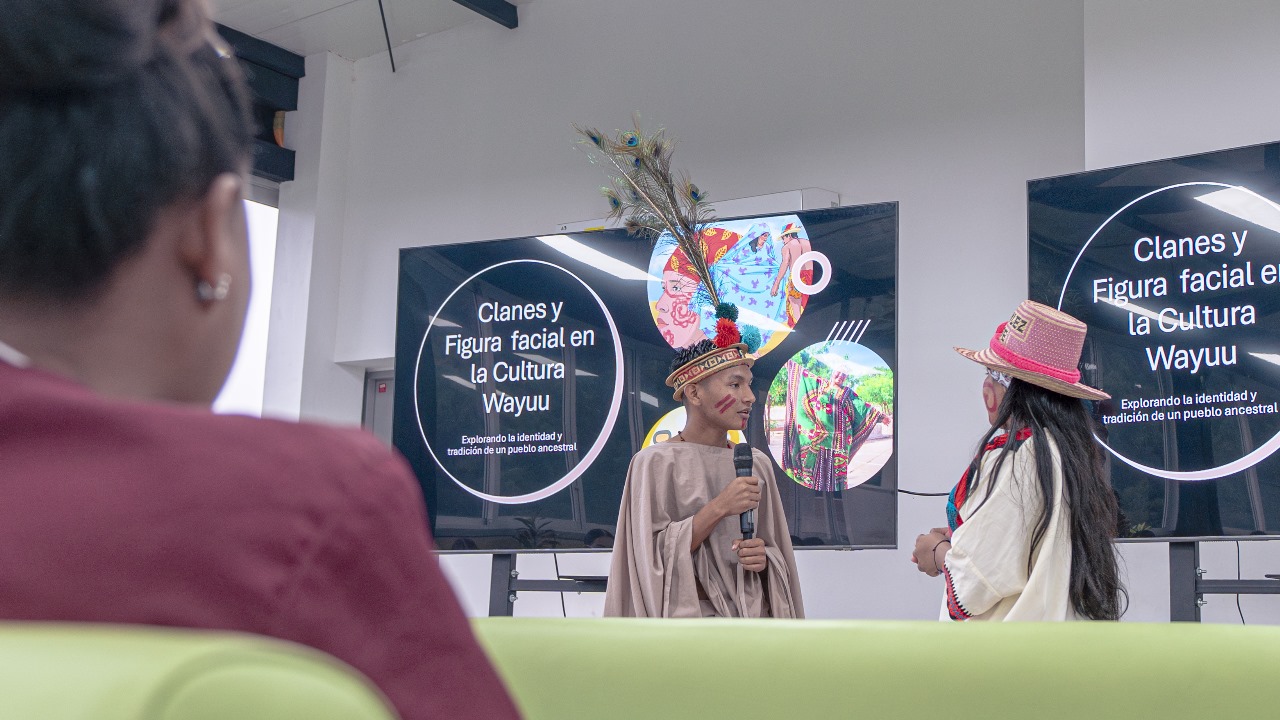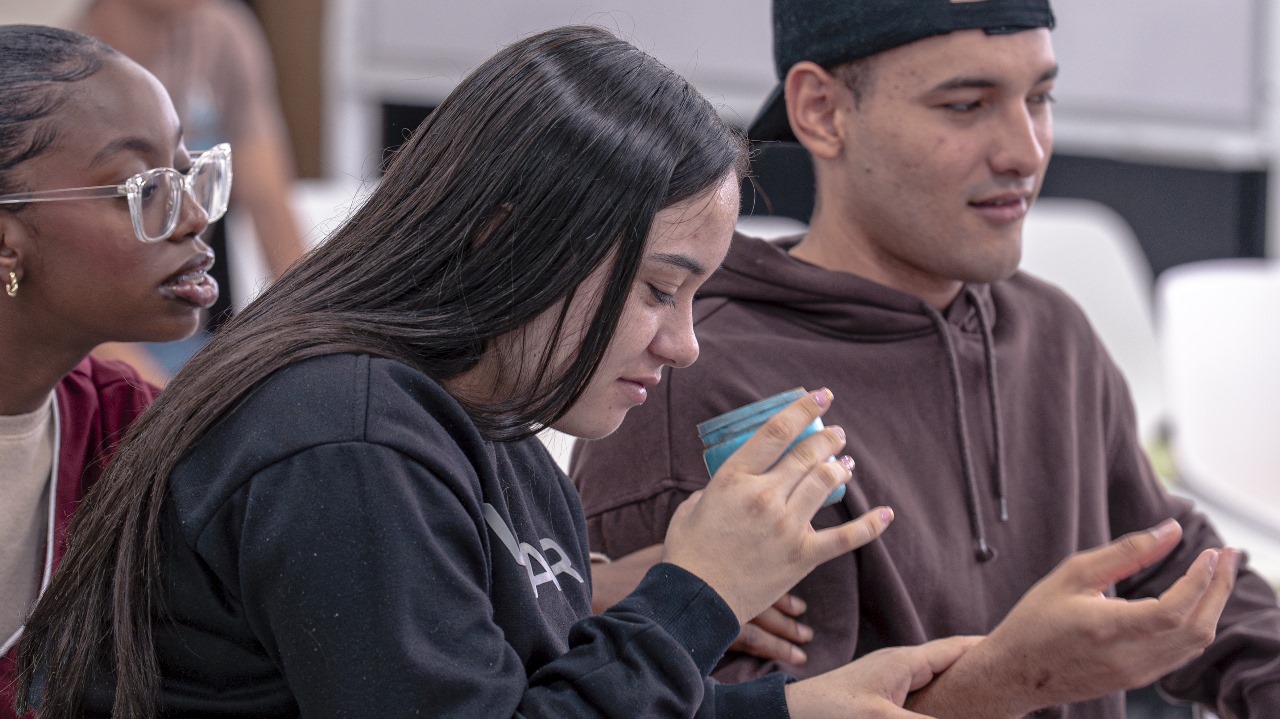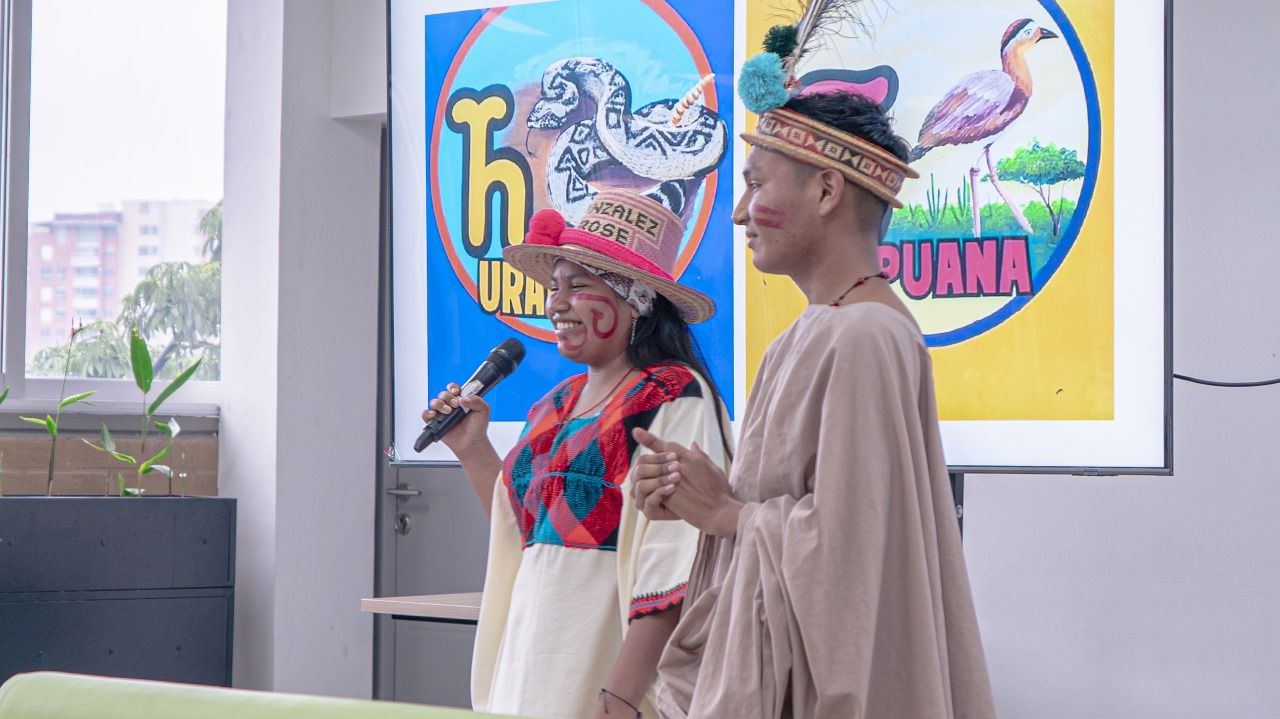Por su carácter de institución universitaria abierta, incluyente, participativa, democrática y pluriétnica, las diferentes expresiones culturales de los pueblos originarios y nativos del país confluyen en el TdeA.
Conforme a este postulado organizacional, entre el 29 de abril y el 30 de mayo se lleva a cabo, en el campus de Robledo, la octava Semana de Lenguas y Culturas.
“Es un evento que consolida al español, como lengua materna, desde la literatura, la oralidad y la lingüística, pero también en términos de lenguas nativas. Nuestra propuesta es conocer, difundir y valorar las otras expresiones y lenguas del país. Nosotros en el TdeA tenemos alrededor de 10 culturas diferentes: emberá katío, wayúu, arhuaco, zenú y emberá chamí, entre otros”, indicó Víctor Santiago Largo Gaviria, coordinador del Área Lengua Materna, del Departamento de Ciencias Básicas y Áreas Comunes del TdeA.
En su octava edición, la Semana de Lenguas y Culturas dedica gran parte de su programación a exaltar el valor ancestral y riqueza cultural de la comunidad wayúu, pueblo indígena que habita en la península de La Guajira, entre Colombia y Venezuela.
“Quisimos este año resaltar la tradición wayúu. Haremos un taller de lingüística y pintura con símbolos wayuunaiki, que es la lengua de este pueblo. Una estudiante de este pueblo hará lectura de poemas en su lengua natal. Tenemos la proyección y conversatorio del documental ‘La eterna noche de las 12 lunas’ y una charla acerca de la subjetividad y empoderamiento de las mujeres wayúu a partir de la representación teatral”, agregó.
Así mismo, conforme al enfoque de competitividad global y de actividades de internacionalización, la institución se ha fijado el compromiso de enseñar, promover y afianzar el bilingüismo en cada una de las instancias que integran la comunidad académica.
“Tenemos también el acompañamiento del departamento de inglés con una propuesta muy interesante sobre la difusión, aprendizaje y enseñanza de este idioma en nuestra institución”, concretó el docente.
La octava Semana de Lenguas y Cultura es un evento organizado por la Rectoría, Vicerrectoría Académica, Departamento de Ciencias Básicas y Áreas Comunes, Departamento de Inglés, Programa Pluridiversos y Mesa Indígena del TdeA.
Ver la programación completa en:
![]()
The Wayúu People, Protagonists in the Week of Languages and Cultures at TdeA
Due to its nature as an open, inclusive, participatory, democratic, and multiethnic university institution, the different cultural expressions of the indigenous and native peoples of the country converge at the TdeA.
According to this organizational postulate, from April 29 to May 30, the eighth Week of Languages and Cultures is taking place on the Robledo campus.
"It is an event that consolidates Spanish as a mother tongue thru literature, orality, and linguistics, but also in terms of native languages." Our proposal is to know, disseminate, and value the other expressions and languages of the country. We at TdeA have around 10 different cultures: Emberá Katío, Wayúu, Arhuaco, Zenú, and Emberá Chamí, among others," said Víctor Santiago Largo Gaviria, coordinator of the Mother Tongue Area, Department of Basic Sciences and Common Areas at TdeA.
In its eighth edition, the Week of Languages and Cultures dedicates a large part of its programming to exalt the ancestral value and cultural richness of the Wayúu community, an indigenous people who inhabit the La Guajira peninsula, between Colombia and Venezuela.
"We wanted to highlight the Wayúu tradition this year." We will hold a workshop on linguistics and painting with wayuunaiki symbols, which is the language of this people. A student from this community will read poems in her native language. We have the screening and discussion of the documentary 'The Eternal Nite of the 12 Moons' and a talk about the subjectivity and empowerment of Wayuu women thru theatrical representation," she added.
Likewise, in accordance with the global competitiveness approach and internationalization activities, the institution has committed to teaching, promoting, and strengthening bilingualism in each of the instances that make up the academic community.
"We also have the support of the English department with a very interesting proposal on the dissemination, learning, and teaching of this language in our institution," the teacher specified.
The eighth Week of Languages and Culture is an event organized by the Rector's Office, Academic Vice-Rector's Office, Department of Basic Sciences and Common Areas, Department of English, Pluridiverse Program, and Indigenous Table of TdeA.
See the full schedule at:



